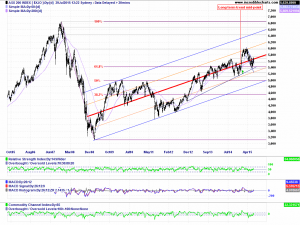I started this post in September 2010 after a company called Sonray went out of business, left it as a draft and forgot about it – but looking at the subject line it would seem to be relevant at any time.
So you have worked all your life, been diligent with your savings, you have a nice secure nest egg for your years to come — and all of a sudden things change.
Whether we are talking about the GFC event or the collapse of a financial product or business, divorce or even a death, your future may start to look a little different. I have the utmost sympathy for those tied up with businesses that have gone broke, a lot of great people have lost money with supposedly reputable companies, just trying to make good investments, and it really sucks as you are often an innocent party – perhaps just believing in what your Financial Planner or Adviser was telling you.
Let me state that I have never seen any adviser start out with a goal to lose their clients money. Often what happens is that bad timing or bad choices become worse over time. I will cover this in much more detail in another article.

After the initial shock has set in, the worst thing you can do is nothing….
What is done is done, this article isn’t about how or even why, but whats next — how can I recover from this.
Stay calm, rarely is a good decision made when emotions are high. Start to refocus and determine your logical investment goals. They may be very different, but the rebuilding process is very important to your future — so start doing something, and that means now!
Identify your assets, and whether those assets can recover. Remember most quality assets will regain their value over time.
Try not to be a buyer after a major surge in price or a seller after a harsh fall (esp from fear). Do not over commit with leverage, but do become more active, get some help and stay involved. Re-evaluate your strategy often, making sure you see the big picture.
For those in Australia that have lost money to an adviser that feel that they were given advice that was not appropriate, there are legal avenues to pursue. Everyone with an AFSL has a complaint handling process, start there.
Feel free to contact me for further information.
